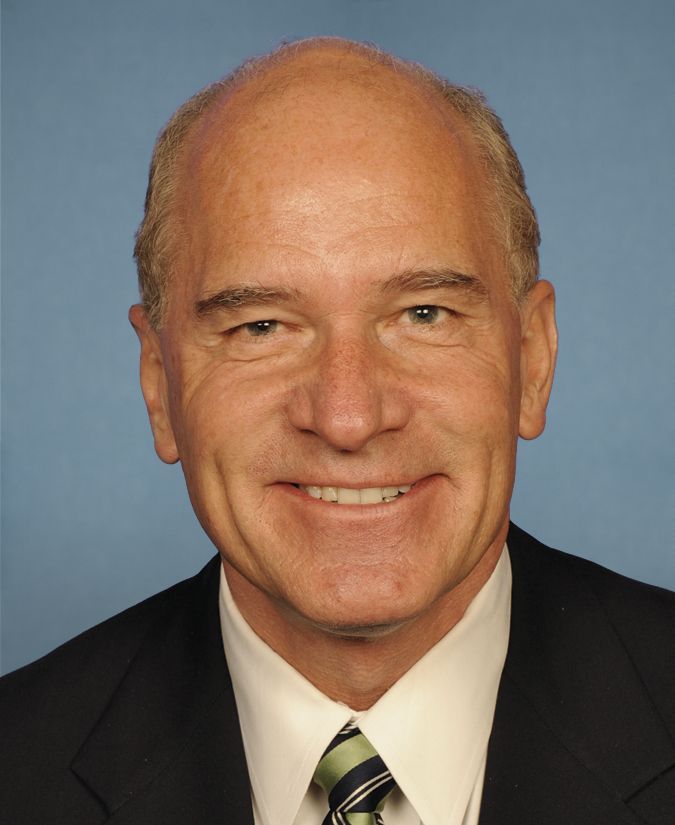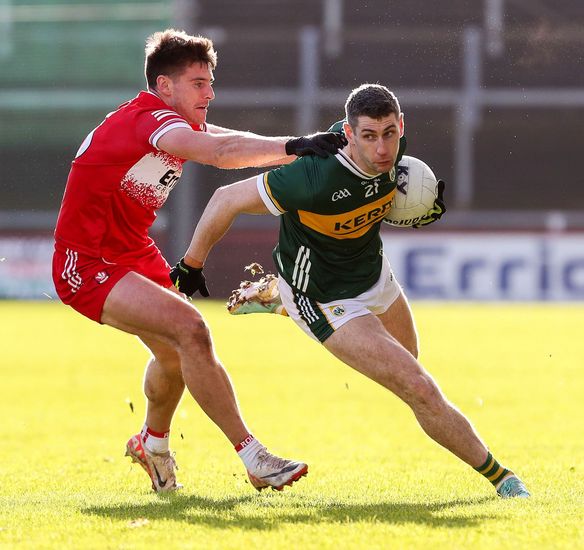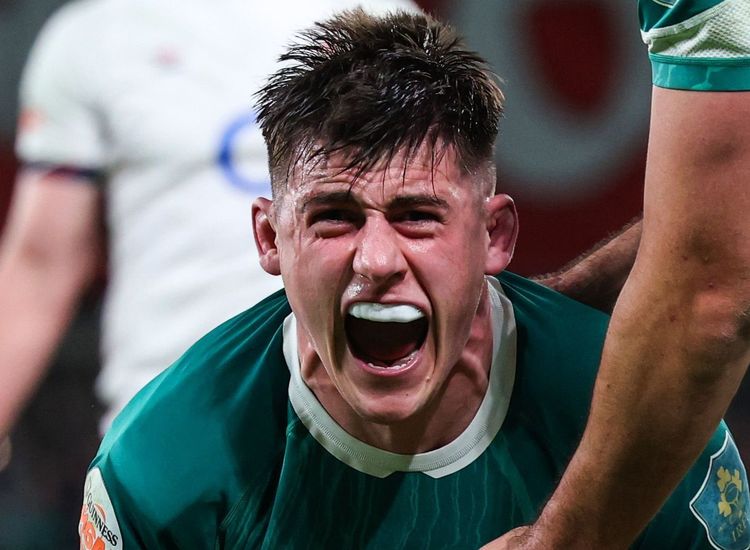House Foreign Affairs Subcommittee on Europe Chairman Bill Keating (D-MA) is optimistic.
He was feeling so after leading a congressional delegation (CODEL) to Dublin and Belfast that included Congressmen Brian Higgins (D-NY) and Juan Vargas (D-CA).
And Congressman Keating said that he was reinforced in his view that President Biden should appoint a U.S. envoy to Northern Ireland.
Said Chairman Keating upon his return to the U.S.: “This trip has left me feeling hopeful for the future of Northern Ireland.
"Without question, there has been an acknowledged change in the mood of all the participants involved on the ground. And in fact, it’s clear the sentiment of the people has advanced further than political negotiations to resolve issues related to the Northern Ireland Protocol, government formation within the Northern Ireland Executive and Assembly, and legacy issues included in the Good Friday Agreement.
"But one area where both officials and citizens, business leaders, and other local stakeholders agree is that the economic prosperity that Northern Ireland is already experiencing has the potential for even greater growth with a resolution.
"The delayed elections provide a window of urgency needed for all sides to move forward. And the general feeling is that there is opportunity for substantive, positive negotiations, and a pathway forward – seen by the leaders I met with in both Ireland and the UK. This is opportunity is reinforced by last week’s British Irish Council meeting between the Taoiseach and British Prime Minister.
“While in Belfast, we visited a trauma center where we met with victims and family members of victims of the Troubles. It is my great hope that the legacy issues will not be sidetracked by the recent legislation in the UK. Additionally, this trip has solidified my determination to encourage the President to appoint a U.S. Special Envoy to Northern Ireland.”
Said Congressman Higgins: “The U.S. government, and the United States Congress in particular, have played a pivotal role in promoting peace in Northern Ireland. Our meetings reaffirmed the importance of the 1998 Belfast agreement, which ended 30 years of violence, with a commitment to continue and protect it for the future."
Said Congressman Vargas: “It was an honor to join my colleagues as we work together to strengthen the U.S.-Ireland relationship. We listened to Irish leaders from all walks of life and reaffirmed the United States’ commitment to supporting peace in Ireland. The United States values its longstanding relationship with Ireland, and we look forward to continuing our bi-national partnership for years to come.”
According to a statement, highlights of the CODEL included: In Dublin, the delegation was welcomed by Ambassador Claire Cronin who accompanied the CODEL during a serious of meetings with high-level interlocutors in Ireland. Specifically, the delegation first met with Taoiseach Micheal Martin, where they reaffirmed the strong relationship between the United States and Ireland, and the positive role the United States has played in the development of peace in Ireland and Northern Ireland, as well as discussed the current state of the continued implementation of the Belfast / Good Friday Agreement.
The delegation traveled to the Ministry of Foreign affairs where they met with Secretary General Joe Hackett and Minister of State for European Affairs Thomas Byrne TD. Following this meeting the delegation met with the American Chamber of Commerce, led by Director Mark Redmond, to discuss Russia’s illegal invasion of Ukraine, the Northern Ireland peace process, energy security, data privacy, trade, and business ties between the US and Ireland. Meta, Amazon, MetLife, LinkedIn, Momentive.ai, and Service Now were among the companies that attended the meeting.
The delegation sat down with a range of Irish parliamentarians led by Representative Charles Flanagan, Chair of the Irish Foreign Relations Committee, and attended by Patty Harte, Director of the International Fund for Ireland. Finally, the delegation also visited the Glencree Center for Peace and Reconciliation to better understand the organization’s mission to prevent and transform violent conflict by engaging people in dialogue, trust- and relationship building.
In Belfast, the CODEL met with a wide range of stakeholders critical to the continued development of the Belfast / Good Friday Agreement. The delegation also met with the five main political parties in Northern Ireland including, the Alliance Party, the Democratic Unionist Party, Sinn Fein, the Social Democratic and Labour Party and the Ulster Unionist Party. During those discussions, the delegation listened to their perspectives as well as urged all parties to come together and seek a solution to current disputes related to the Northern Ireland Protocol as well as voiced their great concern related to the United Kingdom’s proposed legacy/amnesty legislation.
The delegation traveled to the Stormont to meet with Speaker Alex Maskey to discuss the current status of the Northern Ireland Assembly.
The delegation also met with Secretary of State for Northern Ireland Chris Heaton-Harris, where they reaffirmed the strong US-UK relationship, US-UK efforts to support a free and independent Ukraine, the energy crisis affecting Europe as well as current negotiations related to the Northern Ireland Protocol, and the delegation’s serious concerns with the UK government’s proposed legacy/amnesty legislation. Members of the CODEL and Secretary Heaton-Harris both agreed that there is a current window of opportunity and that a solution to the situation related to the Northern Ireland Protocol would provide significant economic benefits in Northern Ireland
In Belfast, the delegation also met with a variety of community stakeholders. This set of meetings included a tour, visit and round table led by Principal Amanda McNamee and selected students from Lagan Integrated College. Lagan Integrated College was the first integrated college and the members of the CODEL were encouraged by the cross-community relationship that the educational center has fostered.
The CODEL’s community outreach also included a visit to WAVE Trauma Center, a cross-community initiative that provides a platform for those affected by violence during the Troubles to seek healing through discussion, art, and engagement with the community.
Finally, the delegation also toured the “Peace Walls” of Belfast to further understand the physical divides that keep communities separated as well as Black Mountain Shared Space Project, an International Fund for Ireland-funded community space that seeks to build bridges between Protestant and Catholic communities in Northern Ireland.











